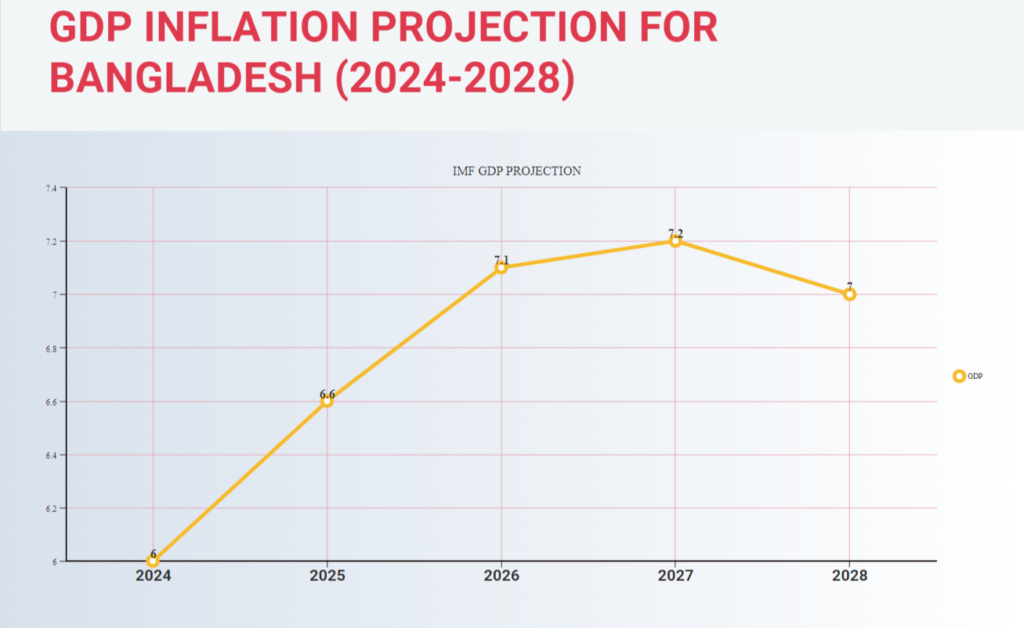A very new generation of businessmen in the private sector has evolved in Bangladesh with prominence and that is why the country of 165 million people has received the brand value of one of the fastest-growing economies in the world. Despite facing various challenges such as poverty, inequality, and climate change, the country has achieved impressive economic and social progress.
Read more at: Illegal Money Trading Draws 9 Million Dollars Loss Each Day
According to projections from PricewaterhouseCoopers (PWC), Bangladesh is expected to become the 28th largest economy by 2030 and further climb to the 23rd position by 2050. What are the factors behind this remarkable rise and what lies ahead for Bangladesh’s economy?
The role of the private sector
Globally, the private sector has been instrumental in diversifying the economy, boosting exports, creating jobs, and reducing poverty and Bangladesh is walking on the same track. This economic pattern has key drivers of Bangladesh’s growth and development employing over 90% of the 70 million-strong workforce.
The most prominent example is the ready-made garment (RMG) industry, which accounts for about 80% of the country’s export earnings and employs about 4.5 million workers, mostly women. The RMG industry has also stimulated the growth of other sectors such as textiles, leather, plastics, and packaging.
However, the private sector is not limited to the RMG industry. Bangladesh has also witnessed the emergence of other competitive and innovative sectors such as pharmaceuticals, information and communication technology (ICT), shipbuilding, agribusiness, and light engineering.
These sectors have shown potential to expand their domestic and international markets, increase value addition, and generate employment. For instance, the pharmaceutical sector has grown at an average annual rate of 15% since 2010 and now meets about 98% of the domestic demand for medicines4. The ICT sector has also grown rapidly, reaching a market size of $3.5 billion in 2020 and employing about 1.2 million people.
The success of these sectors can be attributed to the entrepreneurial spirit, innovation, and resilience of the private sector actors, who have overcome various challenges such as infrastructure bottlenecks, regulatory barriers, skills gaps, and market access constraints.
The private sector has also benefited from the support of various stakeholders, such as the government, development partners, civil society, and academia, who have provided policy reforms, financing, technical assistance, and capacity building.
The Role of The Government Policies
Another factor that has contributed to Bangladesh’s growth and development is the conducive policy environment created by the government. The government has pursued a liberal and export-oriented economic policy, which has encouraged private investment, trade, and foreign exchange inflows.
The Bangladeshi government has also implemented various fiscal and monetary measures to stimulate domestic demand, maintain macroeconomic stability, and mitigate the impact of external shocks. Moreover, the government has invested in human development, social protection, and infrastructure, which have enhanced the productivity, welfare, and resilience of the population.
The government’s policymakers have also adopted several strategic plans and policies to guide the country’s long-term vision and goals. Some of these include the Vision 2021, the Perspective Plan 2010-2021, the Seventh Five Year Plan 2016-2020, the National Sustainable Development Strategy 2010-2021, and the Delta Plan 2100.
Recognizing the crucial role of the private sector as a partner in development, the government has taken steps to improve the business climate, facilitate access to finance, promote innovation and technology, and foster public-private dialogue and collaboration.
Some of the initiatives undertaken by the government include the Bangladesh Investment Development Authority, the Bangladesh Economic Zones Authority, the Bangladesh Hi-Tech Park Authority, the Bangladesh Innovation Forum, and the Public-Private Partnership Authority.
The future of Bangladesh’s Economy
Looking ahead, Bangladesh faces both opportunities and challenges for sustaining its growth and development. On the one hand, the country has a large and young population, a growing middle class, a strategic location, and a diversified export base, which offer potential for further expansion and diversification of the economy.
On the other hand, the country also faces risks such as the external shocks(Russo- Ukrainian), environmental degradation, natural disasters, social unrest, and geopolitical tensions, which could hamper its growth prospects and development achievements.

To overcome these challenges and seize the opportunities, Bangladesh needs to embark on a new round of reforms to support a more competitive, diversified, and outward-oriented private sector that can drive growth and create jobs.
According to a recent report by the International Finance Corporation (IFC) and the World Bank, some of the priority areas for reforms include: (a) creating a more favorable trade and investment environment; (b) restructuring and modernizing the financial sector; and © removing infrastructure bottlenecks.
The report also identifies some of the sectors that have the strongest potential for private investment and can contribute to the country’s economic transformation. These include transport and logistics, energy, financial services, light manufacturing, agribusiness, healthcare, and pharmaceuticals.
The report suggests that these sectors can benefit from policy interventions, regulatory reforms, market incentives, and public-private partnerships to enhance their competitiveness, efficiency, and sustainability.
Conclusion
Bangladesh has achieved remarkable economic and social progress in the past decade, thanks to the dynamism of the private sector and the supportive role of the government. The country is poised to become one of the largest economies in the world by 2050, if it can sustain its growth momentum and overcome its challenges.
To do so, the country needs to unleash the full potential of the private sector, which can be a powerful engine of growth, innovation, and job creation. By pursuing a comprehensive and inclusive reform agenda, Bangladesh can pave the way for a prosperous and resilient future.


